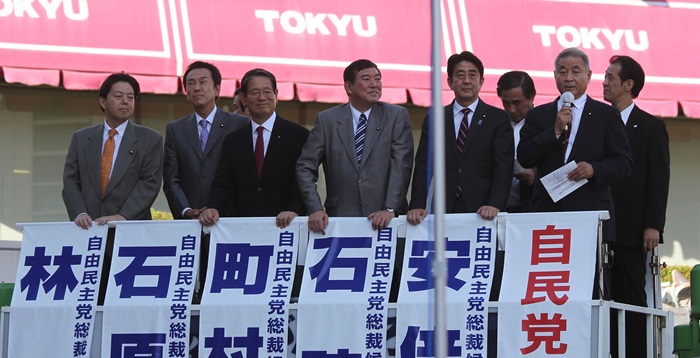Having failed for 15 years, the odds that Japan will soon allow casinos in the country have greatly improved thanks to changes in the political landscape there that could put the country in a position to benefit from the legalization of the casino industry, according to individuals involved in the push.
While concerns such as gambling addiction contribute to the 2-to-1 opposition to casinos by the Japanese public, insiders say that the political scales are beginning to tilt in favor of recent legislation that will enable the development of integrated resorts that would operate casinos and hotels. On September 29, a bill was drafted that would do just that and lawmakers confirmed their plan to introduce the bill prior to the current Diet session’s conclusion for the year.
Standing to benefit from the ban being lifted on the casino industry are companies such as Japanese holding company Sega Sammy Holdings Inc. (6460:JP), that is currently developing Paradise City in Incheon, and Paradise, Nevada-based Las Vegas Sands Corp (NYSE: LVS). According to estimates by brokerage and investment group, Credit Lyonnais Securities Asia (CLSA), legalization could amount to $40 billion annually, making the Japan market second only to the United States, as reported by Reuters.
In 2014, Prime Minister Shinzo Abe said that “Integrated resorts will be a headline attraction for Japan’s growth strategy,” and, “We will continue to consider them from the viewpoint of how to attract people from around the world,” according to the news agency. Increasing the likelihood that the casino ban will finally be lifted and casinos will get the nod was the July election of the first female governor of Toyko, Yuriko Koike, and in August, the election of Toshihiro Nikai as the secretary-general of the ruling Liberal Democratic Party (LDP), both proponents of the IR bill and both increased the LDP’s majority in the Diet. Nikai replaced Sadakazu Tanigaki who was seen as cautious on casinos. Also contributing is a parliamentary schedule that is relatively uncrowded.
Hiroyuki Hosoda, Secretary General of the LDP and a proponent of the casino legislation, said that the likelihood of the IR bill being debated in the session that ends November 30 is almost 100 percent, according to the news agency. If that happens, it just about guarantees its success considering the LDP’s majority in both the upper and lower house.
The political developments in Japan are being monitored by Las Vegas Sands, MGM Resorts International, and Caesars Entertainment Corp. Caesars president of international development, Steven Tight, told Reuters, “We are encouraged by what seems to be growing momentum for integrated resorts in Japan.”



